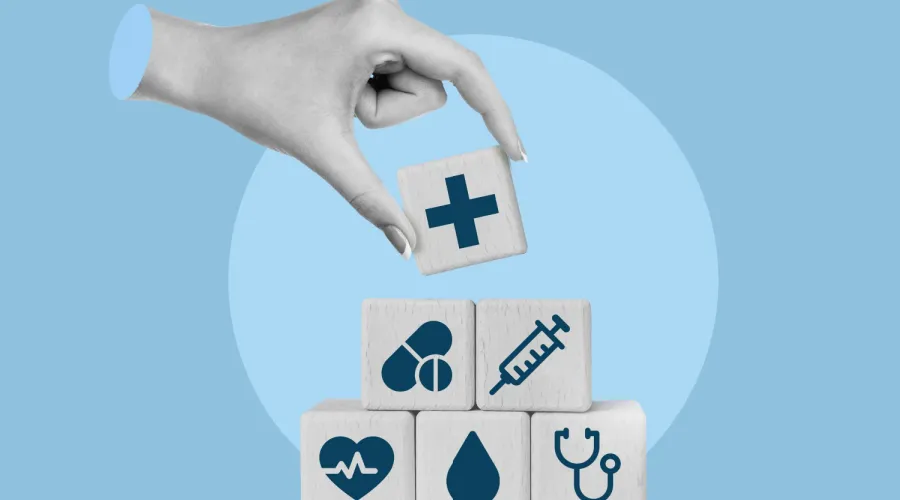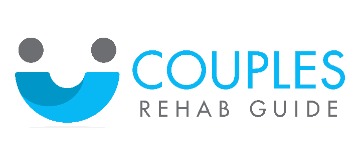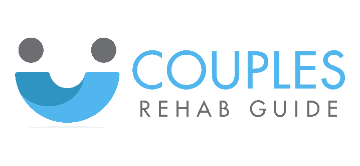Finding Healing Together on the Journey to Recovery
When addiction affects a relationship, the path to recovery becomes a shared journey. Couples rehab New Jersey offers specialized treatment programs designed specifically for partners who want to heal together. These programs recognize that addiction impacts both individuals in profound ways, and that recovery is often more successful when couples face these challenges as a united front.
If you and your partner are struggling with drug and alcohol addiction, finding the right couples rehab treatment program in New Jersey could be the transformative step that not only addresses addiction but also strengthens your relationship in the process.
Our resource from Couples Rehab Guide shows how to find help in the Garden State and what to look for, as well as offering other alternatives both local and nationwide.
What is Couples Rehab and Why Choose New Jersey?

Couples rehab represents a specialized approach to addiction treatment that allows partners to participate in recovery together rather than separating during this critical time.
This integrated approach addresses not only individual substance use disorders but also the relationship dynamics that may contribute to or be affected by addiction.
The Unique Benefits of Couples-Based Treatment
When partners enter rehab together, they gain several distinct advantages over traditional individual treatment models. In couples rehab, both individuals receive comprehensive addiction treatment while simultaneously working on relationship issues that may have contributed to substance use or developed as a result of it. This dual focus creates a foundation for lasting recovery and relationship healing.
Partners in couples rehab learn to identify and change problematic interaction patterns, develop healthy communication skills, and rebuild trust that may have been damaged during active addiction.
Perhaps most importantly, they create a recovery-supportive home environment where both partners understand the challenges of maintaining sobriety and can provide informed support to one another.
Why New Jersey is Ideal for Couples Recovery

New Jersey offers several advantages for couples seeking addiction treatment. The state features a diverse range of treatment facilities, from luxury oceanfront centers to more affordable community-based programs, ensuring options for various budgets and preferences.
Its proximity to major metropolitan areas like New York City and Philadelphia makes it accessible for many East Coast residents, while still providing enough distance for a fresh start.
The Garden State also boasts a robust recovery community with extensive aftercare resources, including numerous 12-step and alternative support groups specifically for couples.
Additionally, New Jersey’s strict licensing requirements for addiction treatment facilities help ensure high-quality care and appropriate credentialing for staff members.
Types of Couples Rehab Programs Available in New Jersey

Couples facing addiction have several treatment options throughout New Jersey, with programs designed to meet different needs, preferences, and severity levels.
Inpatient Couples Rehab Programs
Inpatient or residential treatment represents the most intensive level of care, where couples live at the facility throughout their treatment program. These programs typically last between 28 days and 90 days, depending on the couple’s specific needs and progress.
In residential couples rehab, partners usually share accommodations (though some facilities may require separate rooms initially), while participating in a structured daily schedule of individual therapy, couples counseling, group sessions, educational workshops, and holistic activities. This immersive environment allows couples to focus entirely on recovery without external distractions or triggers.
Residential treatment is often recommended for couples with more severe substance use disorders, those who have attempted outpatient treatment unsuccessfully, or situations where the home environment presents significant relapse risks.
Outpatient Options for Couples
For couples with less severe addiction issues or those unable to step away from work or family responsibilities, outpatient programs offer a flexible alternative. These programs allow couples to live at home while attending treatment sessions several times per week.
Intensive Outpatient Programs (IOPs) typically involve 9-12 hours of weekly treatment spread across 3-4 days, while Partial Hospitalization Programs (PHPs) offer a more intensive approach with 4-6 hours of daily treatment 5-7 days per week. Both options include individual counseling, couples therapy, and group sessions focused on addiction education and recovery skills.
Outpatient couples rehab works best for those with stable home environments, strong motivation, reliable transportation, and less severe substance use disorders. Many couples transition to outpatient care after completing a residential program as part of a comprehensive continuum of care.
The Couples Rehab Experience in New Jersey

Understanding what to expect during couples rehab can help alleviate anxiety and prepare partners for this transformative experience.
Assessment and Customized Treatment Planning
Every couple’s rehab journey begins with a comprehensive assessment process. During this initial phase, both partners undergo individual evaluations to determine the nature and severity of their substance use disorders, identify any co-occurring mental health conditions, and assess physical health status.
Additionally, the relationship itself is evaluated to identify dysfunctional patterns, communication issues, and strengths that can be leveraged during treatment. Based on these assessments, the clinical team develops personalized treatment plans for each individual as well as joint couple-focused interventions.
This thorough planning process ensures that treatment addresses both the addiction issues and relationship dynamics that may contribute to substance use or impede recovery if left unaddressed.
Core Therapeutic Approaches

New Jersey couples rehab programs typically incorporate several evidence-based therapeutic approaches designed to address substance abuse and relationship dynamics simultaneously. Behavioral Couples Therapy (BCT) has shown particularly promising results for treating couples affected by addiction.
This approach focuses on improving communication skills, establishing recovery-supporting daily routines, and creating a “recovery contract” where married couples and partners support each other’s sobriety efforts. It is also helpful for couples dealing with co-occurring substance use and mental health disorders.
Cognitive Behavioral Therapy (CBT) helps individuals identify and change harmful thought patterns related to substance use, while Emotionally Focused Therapy (EFT) helps couples identify negative interaction cycles and develop more secure attachment patterns.
Family Systems Therapy addresses how addiction functions within the relationship system and helps couples establish healthier relationship dynamics. Many programs also incorporate 12-step facilitation, motivational interviewing, and trauma-informed approaches when appropriate.
Addressing Co-Occurring Mental Health Conditions
Many individuals struggling with addiction also experience co-occurring mental health conditions like depression, anxiety, PTSD, or personality disorders. Quality couples rehab programs in New Jersey provide integrated treatment for these dual-diagnosis situations.
When both partners receive comprehensive mental health care alongside addiction treatment, they’re better equipped to support each other’s complete recovery journey.
This integrated approach might include psychiatric evaluations, medication management, specialized therapy for trauma or specific mental health conditions, and education about the intersection of mental health and addiction.
Building a Foundation for Lasting Recovery Together

The ultimate goal of couples rehab is not just achieving sobriety but building a relationship that supports long-term recovery and emotional health for both partners.
Communication and Conflict Resolution Skills
Effective communication forms the bedrock of relationship recovery. In therapy at a couples rehab, partners learn to express feelings, needs, and concerns constructively while also developing active listening skills. Therapy sessions provide a safe space to practice these skills with professional guidance.
Conflict resolution techniques help couples address disagreements productively rather than falling into patterns that might trigger substance use. These skills include identifying underlying issues, using “I” statements rather than accusations, taking timeouts when emotions escalate, and finding collaborative solutions that respect both partners’ needs.
Trust Rebuilding and Forgiveness Work
Addiction often erodes trust within relationships through behaviors like lying, stealing, emotional unavailability, or breaking commitments. Couples rehab provides structured opportunities to begin rebuilding this trust through transparency, consistency, and accountability.
Partners work together to acknowledge past harms, express genuine remorse, make amends when possible, and establish new patterns of reliability. The forgiveness process isn’t about forgetting or excusing harmful behaviors but rather releasing resentments that could otherwise undermine recovery efforts.
Creating Shared Recovery Rituals

Successful couples in recovery often develop shared activities and rituals that strengthen their connection while supporting sobriety. These might include attending support group meetings together, practicing mindfulness or meditation as a couple, establishing regular check-in conversations about recovery progress, or engaging in healthy recreational activities that replace substance-centered socializing.
New Jersey couples rehab programs help partners identify and implement these positive relationship practices before returning to everyday life.
Aftercare Planning: The Critical Next Step
The transition from the structured environment of rehab back to everyday life represents a vulnerable period for recovering couples.
Comprehensive aftercare planning significantly improves long-term outcomes.
Continuing Care Options in New Jersey

New Jersey offers robust continuing care resources for couples in recovery. Many treatment centers provide step-down programs where couples gradually decrease treatment intensity while maintaining clinical support. These might include weekly couples therapy sessions, medication-assisted treatment, regular check-ins with recovery coaches, or couples support groups.
The state also hosts numerous 12-step and alternative recovery meetings, including some specifically for couples or those focused on relationship issues alongside recovery. Some couples benefit from sober living arrangements where they can continue residing in a recovery-supportive environment while transitioning back to independent living.
Relapse Prevention Strategies for Couples
Effective aftercare planning includes developing detailed relapse prevention strategies tailored to each couple’s specific triggers and challenges. These plans identify high-risk situations, early warning signs of potential relapse, and specific actions partners can take to support each other through difficult periods.
Couples learn to recognize when one partner might be struggling and how to respond effectively without enabling or controlling behaviors. They also develop emergency protocols for accessing additional support when facing intense cravings or emotional challenges.
Finding the Right Rehab for Couples in New Jersey

With numerous treatment options available throughout the state, couples should consider several factors when selecting a rehab program.
Central Factors to Consider When Choosing a Program
The most important consideration is finding a program specifically designed for couples rather than a general treatment center that simply allows partners to attend simultaneously. True couples rehab programs integrate relationship therapy with addiction treatment rather than treating them as separate issues.
Other crucial factors include:
- Accreditation and licensing status
- Staff credentials and specialization in couples treatment
- Treatment approaches offered
- Success rates and testimonials
- Insurance coverage and financial considerations
- Location and environment
- Program length and intensity options
Questions to Ask Potential Treatment Centers

Before committing to a drug rehab program, couples should prepare a list of questions to ask prospective treatment centers. These might include:
- What percentage of your clients are couples, and how long have you offered couples-specific programming?
- Do you provide conjoint therapy sessions in addition to individual and group therapy?
- How do you address relationship issues that may have contributed to substance use?
- What family involvement opportunities exist during treatment?
- What aftercare support do you offer specifically for couples?
- How do you handle situations where one partner relapses or wants to leave treatment early?
- What accommodations do you provide for couples (shared or separate rooms, visitation policies, etc.)?
Making a Move for a Better Life, Together
Beginning the journey to recovery as a couple requires courage and commitment from both partners. Remember that reaching out for help demonstrates strength, not weakness, and choosing to heal together can create a powerful foundation for lasting recovery.
How to Initiate the Conversation About Getting Help

If you’re concerned about your or your partner’s drug or alcohol addiction, approaching the conversation with compassion and non-judgment is essential. Choose a calm moment when both partners are sober and relatively stable emotionally. Express concerns using “I” statements that focus on specific behaviors and their impact rather than making accusations.
Listen openly to your partner’s perspective and be willing to acknowledge your own role in relationship dynamics. Present the idea of couples rehab as an opportunity to strengthen your relationship while addressing substance issues, rather than as a punishment or admission of failure.
The Admissions Process Explained
Once a couple decides to pursue treatment, the admissions process typically begins with a confidential phone assessment. During this call, an admissions coordinator will gather information about both partners’ substance use patterns, relationship dynamics, insurance coverage, and treatment preferences.
Many New Jersey couples rehab centers offer expedited admission processes when needed, sometimes arranging entry within 24-48 hours. The admissions team will guide couples through verifying their health insurance plans, travel arrangements, what to bring, and any pre-admission medical requirements.
Get on a Path to Recovery and a Renewed Relationship Now
Couples rehab in New Jersey offers a unique opportunity to address addiction while simultaneously strengthening your relationship. By choosing to recover together, partners can transform a challenging situation into a powerful shared experience that deepens their connection and creates a foundation for lasting sobriety.
The recovery process may not always be easy, but with professional guidance, evidence-based treatment approaches, and commitment from both partners, couples can emerge from addiction stronger and more resilient than before. If you and your partner are struggling with substance use issues, don’t wait to seek help. The path to recovery begins with a single step—one you can take together.
Reach out to our caring team at Couples Rehab Guide now. All calls are confidential, and we are standing by to help you and your special someone, so please don’t hesitate to reach out!


